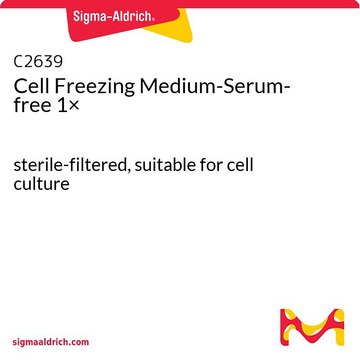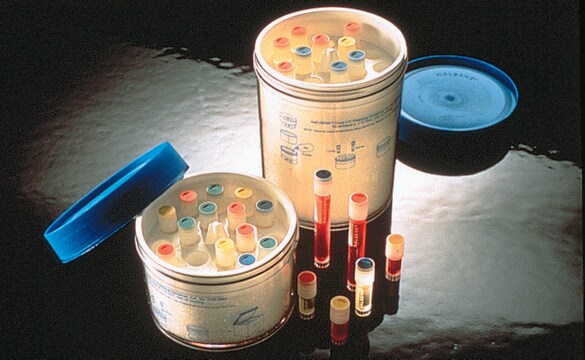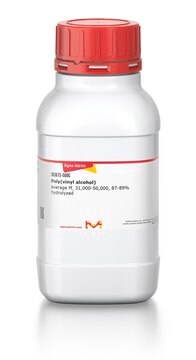C3124
Medios CryoStor® para crioconservación celular
CS2
Sinónimos:
Cell Cryopreservation Solution, Cryopreservation Media
About This Item
Productos recomendados
Quality Level
sterility
sterile-filtered
form
liquid
technique(s)
cell culture | mammalian: suitable
cryopreservation: suitable
shipped in
ambient
storage temp.
2-8°C
¿Está buscando productos similares? Visita Guía de comparación de productos
General description
CryoStor CS2, CS5, and CS10 are a series of cell specific, optimized preservation media, uniquely formulated to address the molecular biological aspects of cells during the cryopreservation process; thereby, directly reducing the level of Cryopreservation-Induced Delayed-Onset Cell Death and improving post-thaw cell viability and function.
These media are recommended for the preservation of stem cells, hepatocytes, tissue samples, and other extremely sensitive cell types.
Application
Cryostor® Cryopreservation Video Protocol
Other Notes
Legal Information
Comparable product
Storage Class
10 - Combustible liquids
wgk_germany
WGK 2
flash_point_f
Not applicable
flash_point_c
Not applicable
Elija entre una de las versiones más recientes:
¿Ya tiene este producto?
Encuentre la documentación para los productos que ha comprado recientemente en la Biblioteca de documentos.
Los clientes también vieron
Protocolos
Cryopreservation efficacy - which includes post-thaw recovery, viability, and functionality is of importance to both research and clinical applications. The cumulative stresses that result from the cryopreservation process and suboptimal freeze media result in cell death from necrosis and apoptosis.
Dilute fibronectin to the desired concentration. Optimum conditions for attachment are dependent on cell type and application. The typical coating concentration is 1 – 5 ug/cm2.Fibronectin coating protocol, products, and FAQs.
Nuestro equipo de científicos tiene experiencia en todas las áreas de investigación: Ciencias de la vida, Ciencia de los materiales, Síntesis química, Cromatografía, Analítica y muchas otras.
Póngase en contacto con el Servicio técnico








